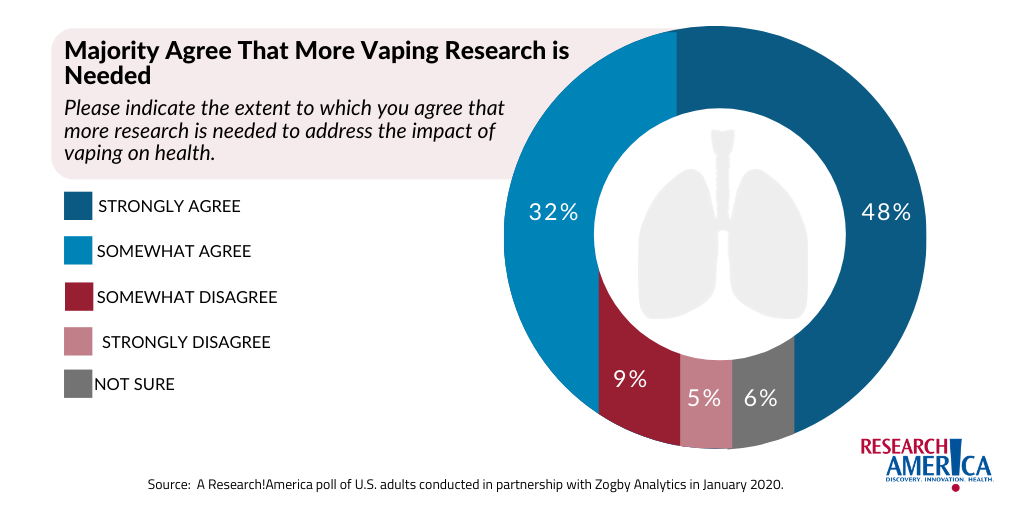What don’t we know about vaping?

More than 480,000 people in the U.S. die each year as a result of the effects of cigarette smoking. Every year on May 31, World No Tobacco Day aims to inform the public on the dangers of using tobacco as well as provide guidance about what people can do to claim their right to health and to protect future generations. This year, the theme is #TobaccoExposed: protecting youth from industry manipulation and preventing them from tobacco and nicotine use.
Every day, more than 3,500 youths in the U.S. begin using e-cigarette or vaping products. Earlier this year, a national outbreak of vaping product use-associated lung injury (EVALI) was declared by the Centers for Disease Control and Prevention (CDC). As of February 18, 2020, a total of 2,807 hospitalized EVALI cases or deaths had been reported to CDC.
The impacts of tobacco and nicotine use are well-documented and researched; however, we lack the research regarding the long-term health impacts of vaping and e-cigarette use. While vitamin E acetate is strongly linked to the EVALI outbreak, the evidence is not sufficient to rule out the contribution of other chemicals including chemicals in either THC or non-THC products. Fortunately, we’ve seen a decline in EVALI cases, but there is still a significant need for additional research to better understand how these products impact health.
The long term health effects of smoking and vaping may well be exacerbated by the current public health crisis. The novel coronavirus that causes COVID-19 attacks the lungs which could pose a threat to those who smoke tobacco or marijuana or who vape, according to Dr. Nora Volkow, Director of the National Institute of Drug Abuse at NIH. A study in the New England Journal of Medicine found Chinese coronavirus patients who smoked were more than twice as likely as those who didn’t to experience severe infections from COVID-19.
In our 2020 commissioned national survey, Research!America asked respondents, for the first time in our history of public opinion polling about support for increased research to address the impact of vaping on health. A strong majority (80%) indicated that they agree that additional research is needed.

For more information on the EVALI outbreak, refer to this CDC reference page. Additionally, the American Heart Association published an article outline what you need to know about vaping. The New England Journal of Medicine has compiled research studies on the impacts of vaping.
You may also find it helpful to review Research!America’s new fact sheet on Tobacco Use and Addiction to stay informed.




